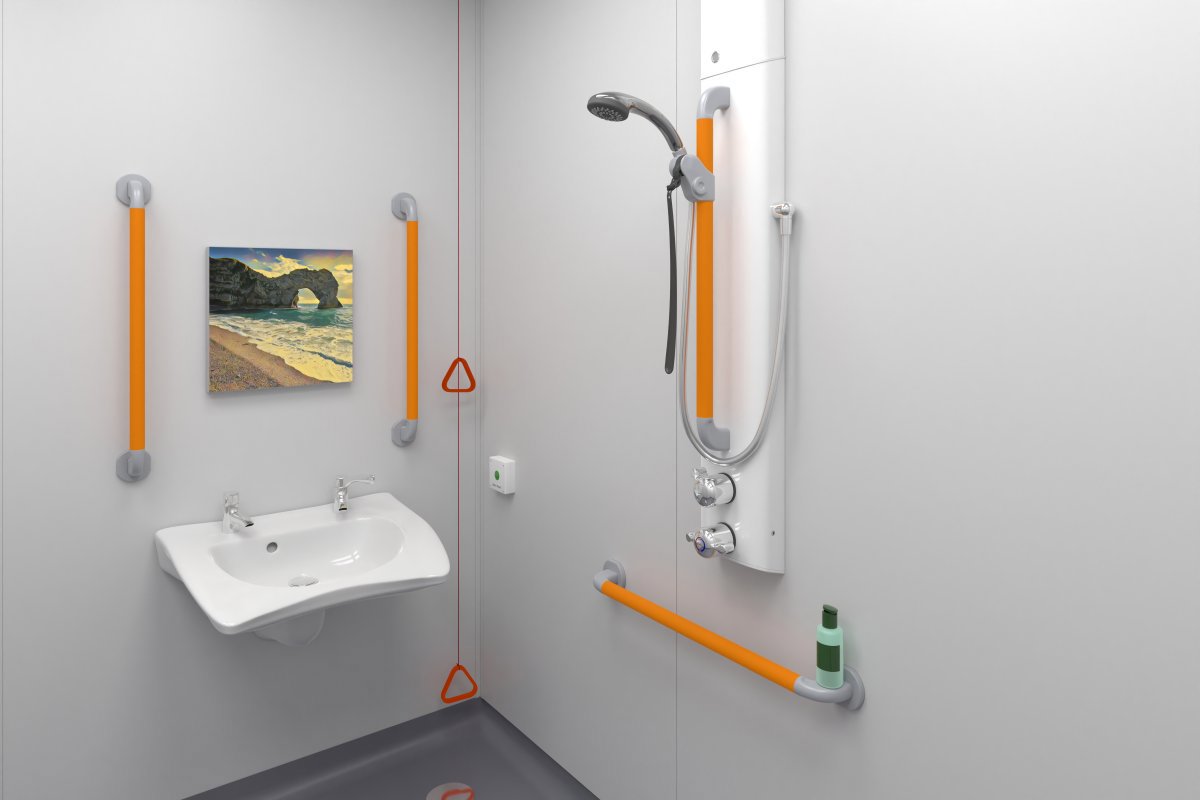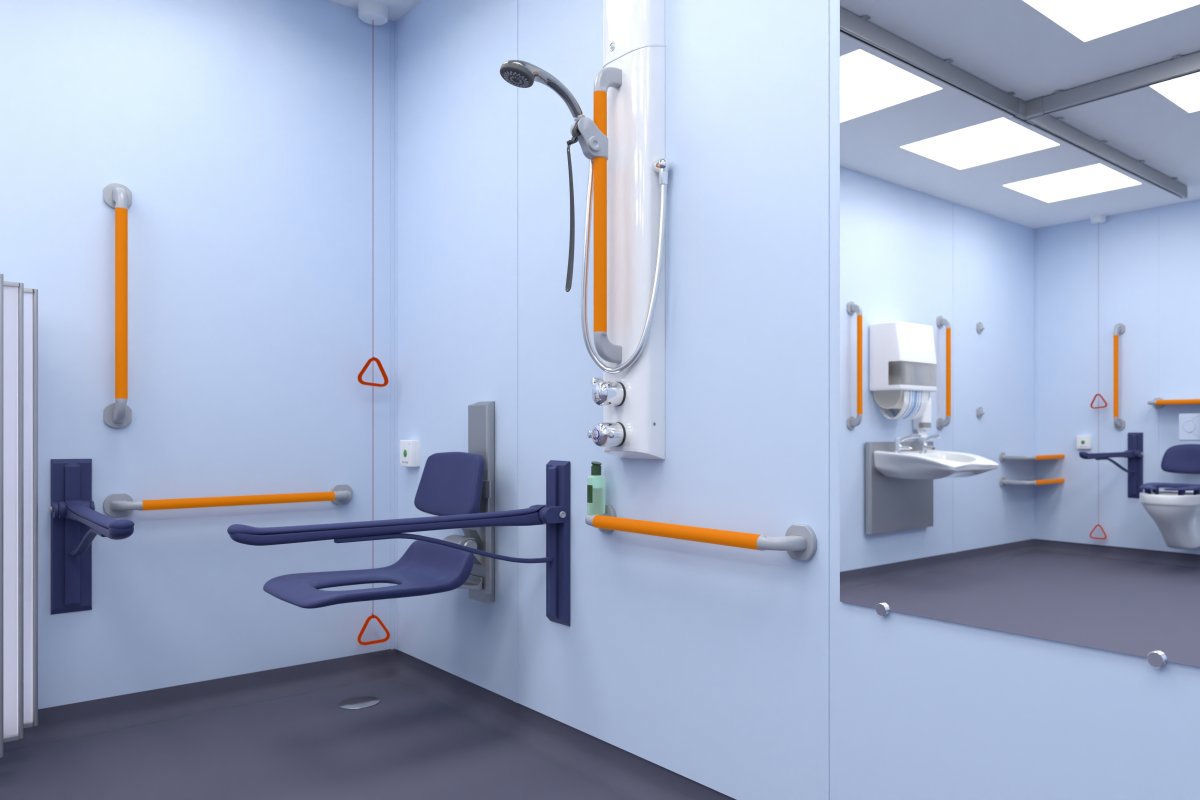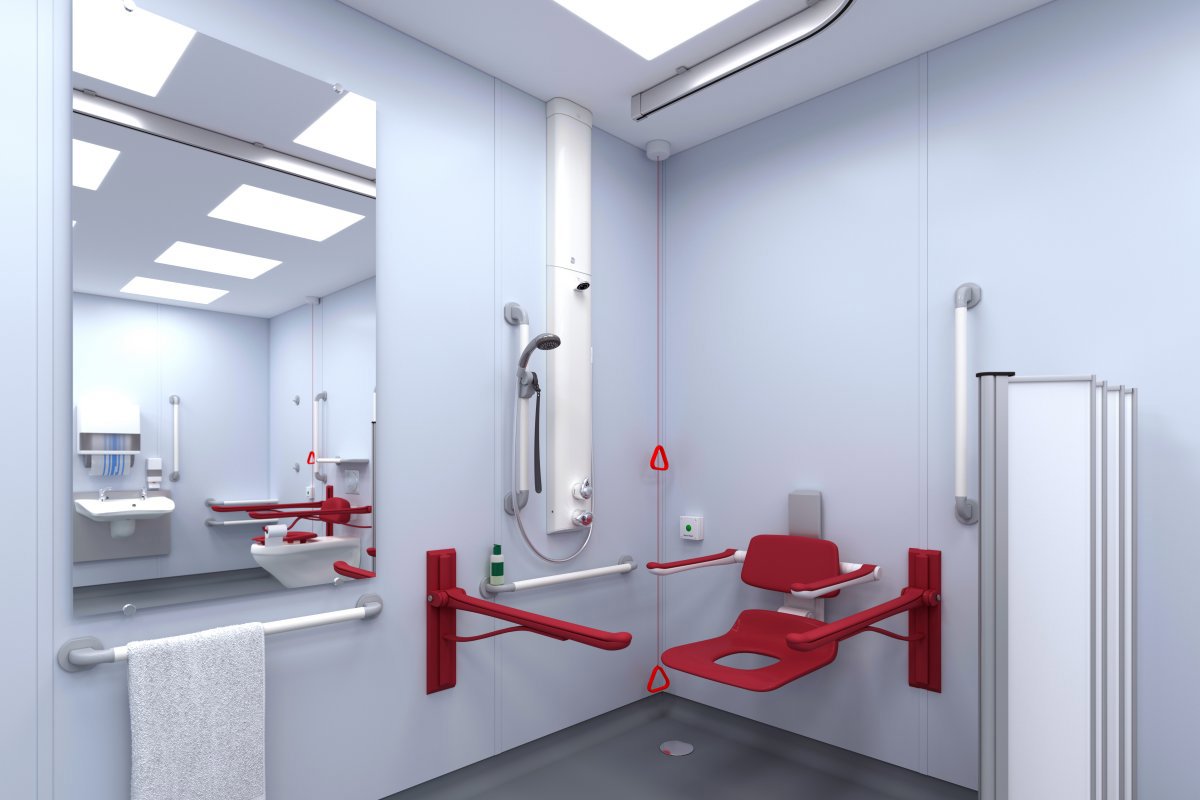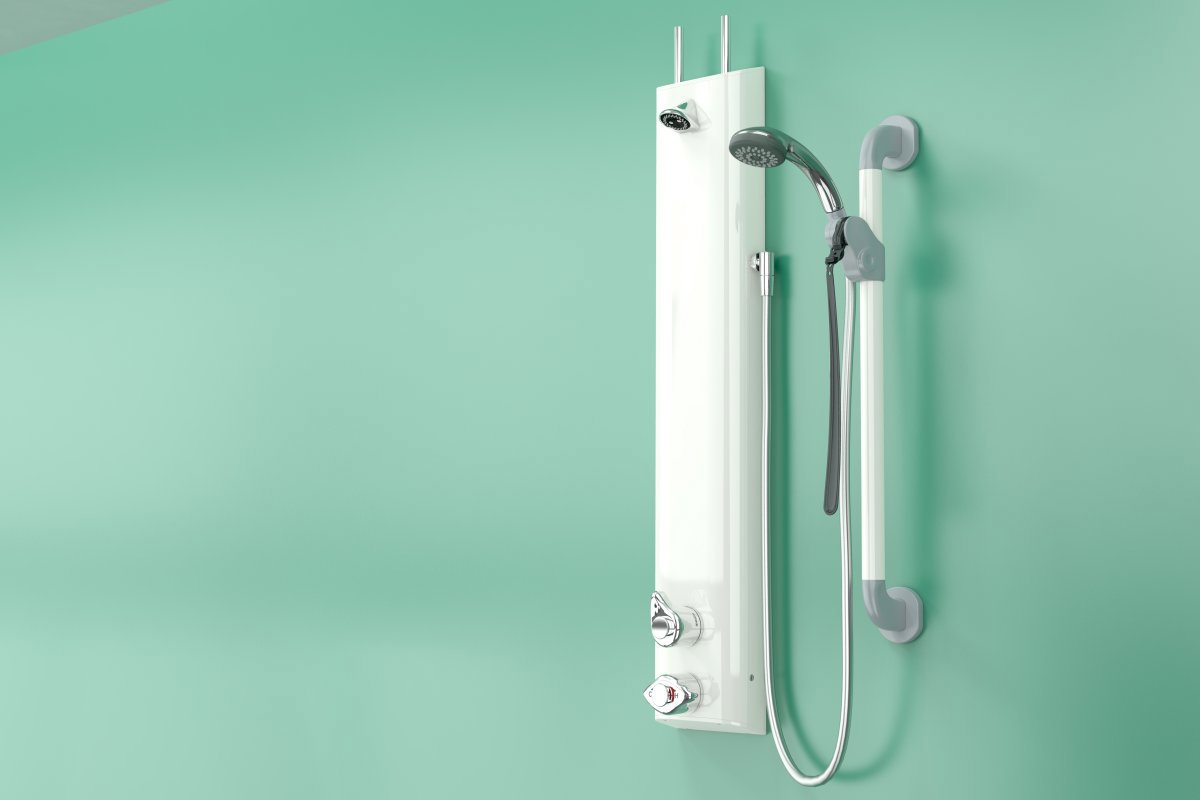
 -
-
and avoidance
Fear of falling, fear of scalding and fear of flooding have been identified as the top three washroom anxieties affecting people living with dementia and this may lead to washroom avoidance and diminishing personal care. Unchallenged, a decline in personal care can have a detrimental effect on physical health and well-being, perhaps also manifesting in further withdrawal from activities and diminishing mental health.
These fears are not hard to understand. Many difficulties develop through ageing and can be wide-ranging and cumulative. General frailty, muscle weakness, obesity, degenerative conditions like osteoporosis and neuropathies can all reduce stability and mobility, and lead to a loss of confidence moving around. Sight loss also contributes - common visual impairments are diminishing colour and contrast sensitivity, depth perception, visual field and acuity. Dementia, Parkinson’s and other neuro-degenerative diseases are also increasingly common, and their progressive nature inflicts further complexity, again with mobility and stability, but also including memory loss, and language and communication difficulties. In combination, all these potential issues could have a significant effect on confidence, motivation and potential stress triggers, manifesting as a withdrawal from a variety of activities, including personal care and hygiene.
Avoidance of personal hygiene and grooming brings its own problems whilst exacerbating existing conditions; skin sensitivity or irritations and pressure sores are likely to become infected and painful. Recurring UTIs and associated incontinence are also familiar complaints. Often these combined conditions can develop into a vicious cycle of ill-health, diminishing self-esteem/motivation and declining mental health.
Improving a person’s personal care and hygiene is, perhaps, a viable means to mitigate such declines in quality of life. As such, let’s encourage and build confidence in the washroom, for both assisted and independent showering. In this and two future posts we will consider the top three washroom anxieties felt by people living with dementia, and explain how our product designs address these issues to encourage greater independence.
Fear of Falling
Exacerbated by stability/mobility and visual impairments, fear of falling can be allayed with attention to light, colour and contrast, and by providing robust, well–placed and easy-to-see hand rails. Environmental design guidelines for dementia care settings advocate bright, well-lit spaces, avoiding glare and shadows, and with good contrast between floor, walls and key features such as sanitary ware, grab rails, shower fittings and seat. It is important to note that the ageing eye loses colour perception from the blue end of the light spectrum, advancing toward yellow, orange and red. Key features should, therefore, make good use of strong, lasting colours, with appropriate hue and tonal contrast with background colours. Although a lasting colour, yellow is inherently pale and light, thus providing inadequate contrast. Red has a relatively low colour value (darker) but may present an additional stress trigger for heat or danger; perhaps inappropriate for an area already associated with heightened anxiety. Orange offers optimal tonal contrast, lower stress triggers and is considered to be emotionally calming due to its associations with the natural world.
Some confidence can be derived from shower users (and their assistants) being better able to see and identify support rails and shower fittings. Use of and interaction with the fittings must also be considered. For example, how a grab rail feels in the grip is important – it must reassure, not elevate stress. As support for standing users, the grab rail also offers an anchor point when pulling up from a wheelchair, the shower seat or, perhaps, following a fall. It is important, therefore, that an enclosing grip, circling the full rail diameter, can be achieved for maximum support in this weight-bearing process. It is also worth bearing in mind how painful joints and stiffness is common; limited hand movement may add discomfort. A rail with 32mm diameter is considered optimal for providing maximum support for the greatest number of users.
Horne grab and shower riser rails can comfortably support a weight of 150Kg and are available in standard white or dementia-friendly Deep Orange.
Next week we will address the second fear: Fear of Scalding



